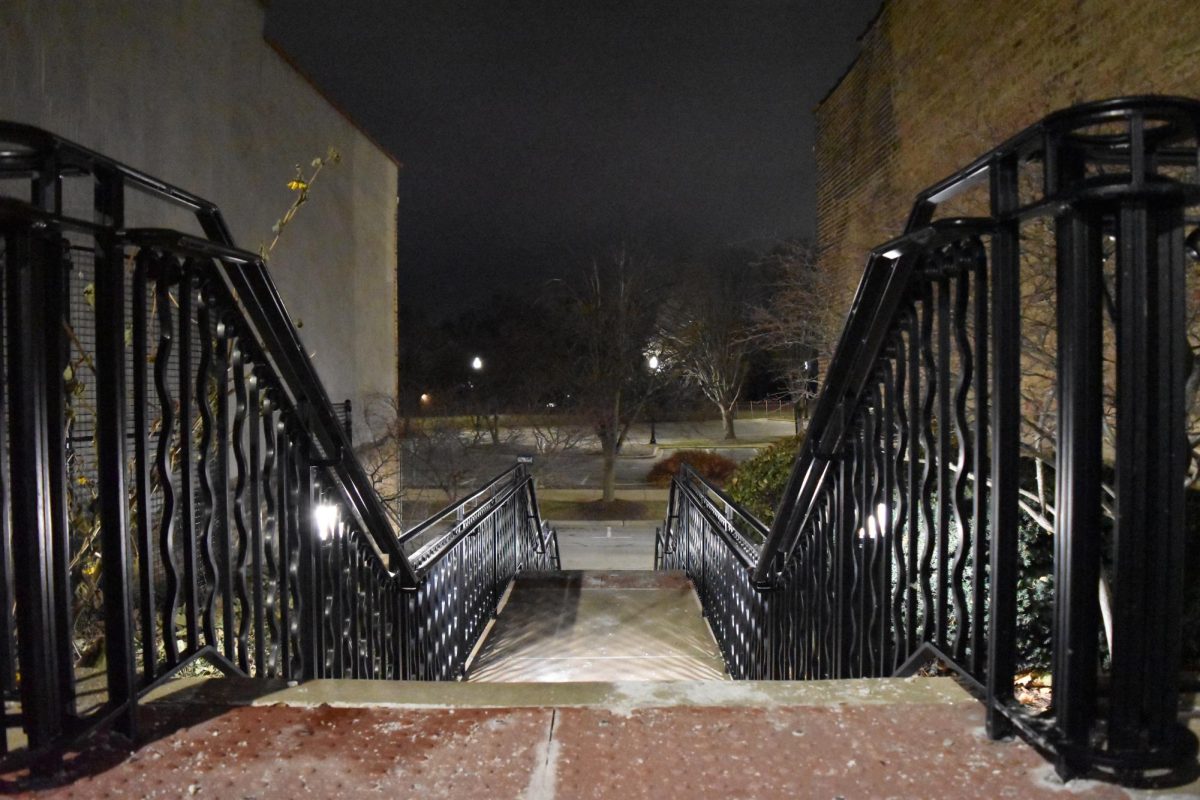Over 2,000 inmates from five correctional facilities in the North Carolina mountains were evacuated in response to Hurricane Helene, according to state officials.
Prisoners were evacuated from the Craggy Correctional Facility in Asheville, the Avery-Mitchell Correctional Institution and Mountain View Correctional Institution in Spruce Pine, the Black Mountain Substance Abuse Treatment Center for Women in Black Mountain and the Western Correctional Facility for Women in Swannanoa.
According to the North Carolina Department of Adult Correction (NCDAC), these prisoners were relocated due to a loss of water and power — the exteriors of the prisons were not damaged. However, none of the relocated incarcerated individuals are back in their original correctional facility.
On Sept. 26, Hurricane Helene made landfall in Perry, Fla. Over the following two days, Hurricane Helene hit western North Carolina. Battering the region with landslides and flooding, and destroying homes. More than 95 people died, according to local law enforcement.
Parts of western North Carolina are still without power and water, including Asheville and Swannanoa, where several of the correctional facilities are located.
In four days, the NCDAC moved 2,190 offenders to 18 other correctional facilities. The NCDAC reported to the Old Gold & Black that the effort took 74 buses and 10 vans, which drove a combined effort of 46,000 miles.
As of Oct. 7, the NCDAC reported “All offenders are safe, and NCDAC is taking all appropriate actions to ensure continued safety and security.”
“Relocation placements were based on available space, gender, custody level and the medical acuity level of offenders,” Brad Deen, communications officer for NCDAC, said.
Keith Acree, the director of the NCDAC communications department, reported that no incarcerated people have been returned to their original correctional facilities.
“All prison facilities have power restored, but the five evacuated facilities still do not have water service, and there’s no certain timeline for when water will be restored,” Acree said, which remains true as of Oct. 7. All facilities can be accessed via road, and no outstanding damage, in flooding or debris, was caused to any facility. However, visitation at all facilities is still indefinitely suspended.
Many Western NC roads are being limited to residents and essential personnel. It is still not advised to travel in the North Carolina Mountains. During the storm, access to the facilities was completely cut off — for several days, immediately after the storm hit, correctional staff had little respite.
In an email interview with the Old Gold & Black, Deen discussed the impact on staff members at the affected correctional facilities.
“It was a tremendous burden for staff who were working when the storm hit to cover for those who physically could not make it to work,” Deen said. “In many cases, staff remained at the facilities because they could not physically make it to their homes. They rested in staff-only areas.”
More than 90 members of the Prison Emergency Response Team (PERT) were sent to Western NC facilities to help relieve staff members.
During this time, state correctional officials asked families not to contact any of the incarcerated individuals at the affected facilities. No affected facilities responded to the Old Gold & Black’s calls at the time, due to a lack of power and available personnel.
“Communications were a logistical challenge. Some telephone services were available (cell and landline), which is one reason we asked family and friends not to call facilities.” Deen said.
Deen reports that the prison system is experienced in handling the burden of severe weather.
“Mass transfers of offenders due to weather emergencies are not a new thing for NCDAC. During Hurricane Matthew in 2016, we temporarily transferred 7,000 offenders, mostly from facilities in the eastern part of the state,” said Deen.
In a World Weather Attribution assessment, scientists sounded a familiar call — climate change is increasing the severity of storms, including Hurricane Helene. The mountainous western North Carolina would have suffered a less drastic impact, but according to the report, “the rainfall was about 10% heavier due to climate change.”
This story was originally published on Old Gold & Black on October 25, 2024.



















![Within the U.S., the busiest shopping period of the year is Cyber Week, the time from Thanksgiving through Black Friday and Cyber Monday. This year, shoppers spent 3.3 billion on Cyber Monday, which is a 7.3% year-over-year increase from 2023. “When I was younger, I would always be out with my mom getting Christmas gifts or just shopping in general. Now, as she has gotten older, I've noticed [that almost] every day, I'll open the front door and there's three packages that my mom has ordered. Part of that is she just doesn't always have the time to go to a store for 30 minutes to an hour, but the other part is when she gets bored, she has easy access to [shopping],” junior Grace Garetson said.](https://bestofsno.com/wp-content/uploads/2025/01/DSC_0249.JPG-1200x801.jpg)





![French teacher Marieme Toure serves a plate of the Senegalese food she prepared for her AP French Language and Culture class, to senior Faiza Syed. “I never had Senegalese food before,” Syed said. “I thought it was so cool that she was able to bring a part of her culture [and] background to us.”](https://bestofsno.com/wp-content/uploads/2025/01/IMG_0798-1200x906.jpeg)




![NEW CHALLENGE, NEW TEAM MEMBERS: Every season, VEX creates a new game that robotics team members are faced with and have to build a robot to compete in. This year’s game forces students to create a robot that is able to stack rings onto mobile goals in order to score points. The change in games each season is something that robotics teacher Audrea Moyers appreciates.
“One of the things that I like about VEX is that they have a new problem to solve every year,” she said. ¨Even though the equipment’s the same, they have to analyze the game, and they have to come up with solutions that are unique that year. They are using their knowledge from prior years, but they have to kind of redesign a problem.”
As returning teams were faced a new game, some new teams and members had to adapt to a uncommon playing field and game.
“Three of our four teams were competing for the first time this year, and they had very different experiences match to match, so I think they learned a lot,¨ she said. ¨It’s hard just watching a video online to know how it’s actually going to be in person, so they all learned a lot about what gameplay is like, how to work with an alliance partner [and] how to adapt during the day to changes.”](https://bestofsno.com/wp-content/uploads/2024/12/IMG_9283-1-1200x800.jpg)






